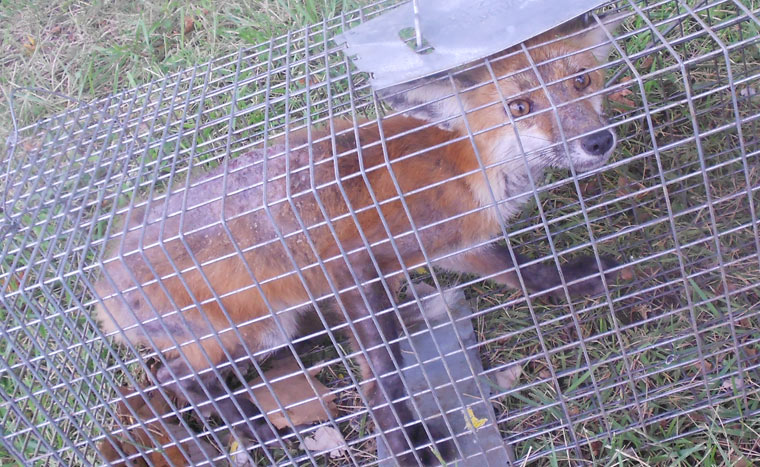-
info@aaanimalcontrol.com
Call us for help in your town
Humane Wildlife Education
Keeping wild animals out of chicken coop
Need wildlife removal in your hometown? We service over 500 USA locations! Click here to hire us in your town and check prices - updated for year 2020.
Have your chickens recently come under attack from predators? Foxes, coyotes, rats, mice, stray cats, neighborhood dogs, skunks, opossums, raccoons, and more can also take a liking to your chicken coop, if you're not careful.

You CAN protect your chicken coop from predatory attacks, and the first method of defense should literally be just that — defending your coop. There are a wide range of modifications you could make, not just on the coop itself, but also on your land / in your garden to ensure these wild critters don't continue to cause a problem.
1 - Clean up. Debris, rock piles, tree hollows, tree stumps or log piles, generic garden waste, and more are all places that wild animals like to hide out. If they have a safe place to hide out, they're close to your chicken coop, waiting for the sun to go down, so they can wreak some havoc. If those piles of waste and other stuff weren't in your land, these creatures would have nowhere to hide.
2 - Work out what animal is hanging around. There are many things you can use to help you to work this out. Feces left behind will give you a good indication, as will the markings and paw prints left behind. When you know what animal is attacking your chicken coop, you'll have a much better idea of how to prevent it. Putting up fences to stop foxes getting in won't help your chickens when they are being attacked by much smaller rats.
3 - Take away food sources. Again, when the animals have a reason to get close to your chickens, they will do just that — get closer. Close enough, sometimes, to attack. If there is no food in the surrounding area — your garden or property — the animal will have no reason to investigate further, this being given the opportunity to find your chickens.
Food sources could be anything, from leftovers thrown into a garbage can, to food remnants being left on a BBQ. Bird feeders are known to attract squirrels and raccoons. Pet food left outside will attract all manner of animals. You may want to consider adding some protection to any food — fruit, spices, herbs or vegetables — you're trying to grow also.
4 - Use chicken wire to prevent animals from digging under and burrowing into your chicken coop. You would install protection above ground, so it just makes sense to add another layer of protection, ensuring that nothing can get in from underground.
Simply dig a trench, of sorts, around the base of your chicken coop, and add that chicken wire, making sure it goes up to, and then attaches to, the chicken coop itself. Use the chicken wire underground in an ‘L’ shape, ensuring that nothing can dig deep enough to get to your chickens.
Once you're done and everything is appropriately fixed into place, fill in the trench. The animals can dig all they like, but they won't be able to get in.
5 - If overhead predators are your cause for concern, you may need to build a cover for your chicken coop. You could easily create a basic box framework out of wood, before filling it in with something such as chicken wire. It might take you a day or so to build, but it will give you decent protection from predators, especially flying ones, such as hawks, owls and eagles.
There are many basic ways that you can protect your chicken coop, and ensuring that you lock your chickens inside overnight is a great place to start. Ensure all holes are blocked up or sealed with strong, durable materials. And keep an eye on them — you'll notice much sooner if a problem is going to arise.
For more information, you may want to click on one of these guides that I wrote:
How To Guide: Who should I hire? - What questions to ask, to look for, who NOT to hire.
How To Guide: do it yourself! - Advice on saving money by doing wildlife removal yourself.
Guide: How much does wildlife removal cost? - Analysis of wildlife control prices.
animals in the attic
noises in the attic


















